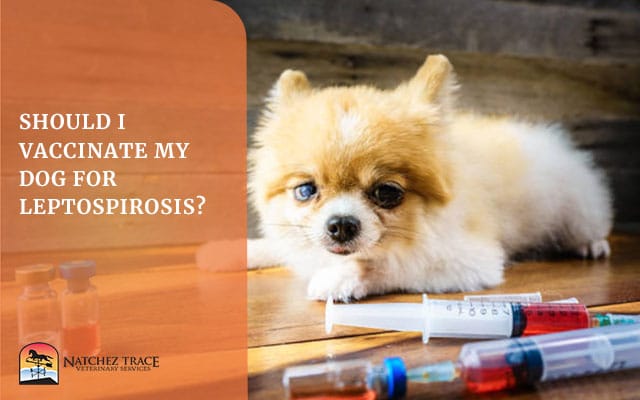From the Desk of Dr. Marc Smith…
A Question for the Doctor:
Should I Vaccinate My Dog for Leptospirosis?
Dr. Smith’s Reply:
What is Leptospirosis?
Leptospirosis is a zoonotic and often fatal disease in dogs.
Recently the news has reported that there has been a string of leptospirosis cases in dogs.
Leptospirosis survives in a warm and humid climate.
Humidity makes the Tennessee area a good source for infection but it is rare that is a huge cause for concern.
Owners and those that handle animals must be aware that it is a zoonotic disease, meaning it is transmissible from animals to humans.
This is also true for any one of the general population that may come into contact with wildlife urine or stagnant water that could be contaminated.
Many of our clients have called with concerns about whether to vaccinate their pets for leptospirosis or not.
Leptospirosis Risk Factors
The risk factors to your pet contracting this disease are as follows:
- Exposure to wildlife or the urine of wildlife
- Stagnant water like ponds or areas that hold water and water runoff after heavy rains
- Rodent infestation as rats are carriers of leptospirosis.
Common house dogs do not need to be concerned about the risk of leptospirosis infection if the above criteria are not part of their environment.
Signs of Leptospirosis
The signs of leptospirosis in dogs are listed below for owners that are concerned about the disease.
Signs of leptospirosis in dogs:
- Signs occur 4-12 days after exposure
- The liver and kidneys are affected and infected animals can shed lepto in the urine for a year after treatment
- Fever is the first symptom
- Weakness
- Joint or muscle pain
- Decreased appetite
- Frequent urination that may contain blood
- Diarrhea
- Yellowing of the mucous membranes
Leptospirosis is treatable with antibiotics. But, it is best for your pet to be hospitalized with intravenous fluids and quarantined to prevent the spread of infection through contact with infected urine.
The risk of vaccinating your pet for leptospirosis is far greater than them actually becoming infected with the disease.
There have been numerous reports of anaphylactic shock and death with the administration of the lepto vaccine in pets.
Anaphylactic shock is the main reason most veterinarians do not recommend the vaccine as the incidence of actual cases of leptospirosis in pets is minimal compared to other illnesses.
Marc Smith DVM








